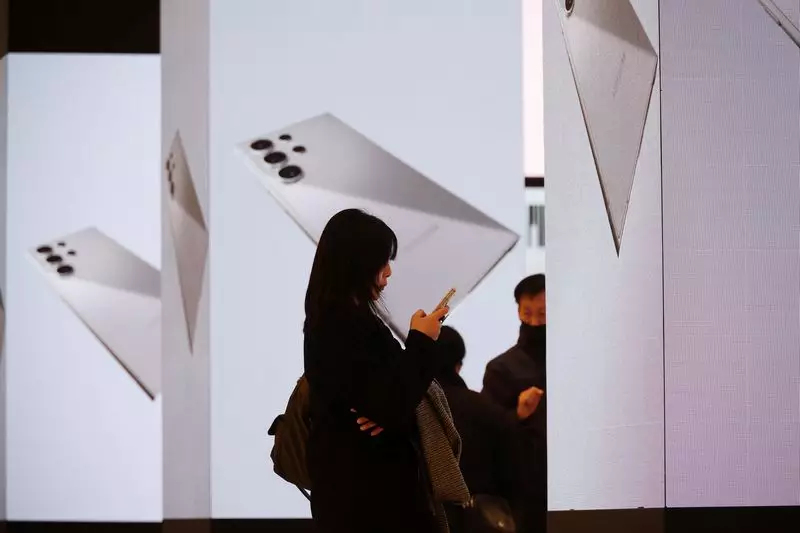Samsung Electronics, a titan in the electronics industry and the largest manufacturer of memory chips globally, reported a surge in its third-quarter profit compared to the previous year. However, this increase fails to convey a sense of robust recovery. The company’s financial performance has reflected a more tempered pace of growth compared to prior quarters, highlighting ongoing struggles in leveraging the booming demand for artificial intelligence (AI) technology that other competitors, such as TSMC and SK Hynix, have successfully capitalized on.
During the July to September timeframe, Samsung disclosed an impressive operating profit of 9.2 trillion won (approximately $6.66 billion), a stark contrast to a mere 2.4 trillion won a year earlier. Despite this positive trajectory, the current financial results marked a decline from the previous quarter’s profit of 10.4 trillion won. While these figures slightly exceeded Samsung’s earlier projections, they nonetheless fell short of broader market expectations, signaling a more precarious position for the tech giant as it navigates a competitive landscape.
One of the key challenges for Samsung lies within its semiconductor division, which is facing diminished performance in light of unforeseen delays in fulfilling sales commitments to a significant client. Such setbacks have prompted Samsung to apologize publicly, a rarity for a company of its stature. Compounding these difficulties is the increasing supply of conventional chips from Chinese manufacturers, straining Samsung’s market competitiveness and affecting its profitability margins.
The dichotomy presents itself clearly: while AI technology emerges as the most significant growth area in chipmaking, Samsung is grappling with its inability to meet the rising demand for high-end chips required for advanced applications. This inadequacy leaves the company vulnerable, especially as the demand for traditional semiconductor solutions—often associated with personal computers and smartphones—weakens.
The contrasts are stark when considering the achievements of rival firms. Companies like SK Hynix and TSMC have reported remarkable gains in their third-quarter performances, primarily fueled by strong sales linked to AI chipsets. These competitors have successfully aligned their product lines with industry demands, placing them in advantageous positions as the market shifts toward AI applications. In direct comparison, Samsung’s results reflect a worrying inability to harness similar opportunities, raising questions about its strategic direction moving forward.
As we look ahead, Samsung has indicated a cautious outlook for the current quarter, suggesting that growth within its chip division will be counterbalanced by underperformance within its consumer electronics business—covering smartphones, televisions, and household appliances. Without more detailed insights into this “set” business, stakeholders may rightfully question Samsung’s capacity for sustainable recovery amidst a rapidly evolving market environment.
As Samsung Electronics confronts barriers to growth, a critical reassessment of its strategies is essential. Amidst a backdrop of unprecedented competition and market shifts driven by AI, the company’s ability to adapt will ultimately determine its trajectory in the semiconductor realm and the broader technology landscape.

